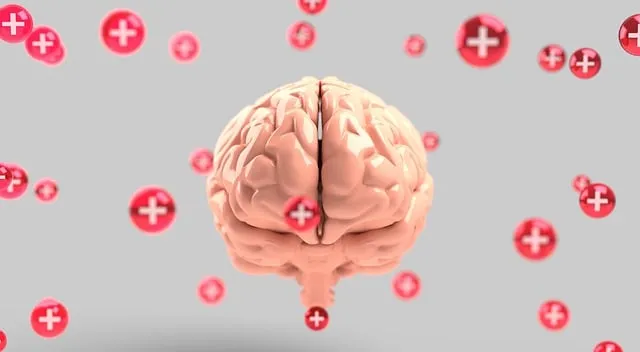Kaiser Permanente Mental Health Englewood prioritizes crisis intervention through a comprehensive, holistic approach. Their training empowers professionals to guide patients towards resilience, managing complex situations with empathy and technical skills. Early detection of mental health crises is key, focusing on subtle signs for timely support. Evidence-based practices like journaling and self-awareness exercises are used to de-escalate issues. Safe online spaces encourage help-seeking and share recovery stories. Post-crisis, ongoing support develops coping skills and prevents recurrences, emphasizing long-term mental wellness through cultural sensitivity and positive thinking.
“In the realm of mental health care, crisis intervention plays a pivotal role in supporting individuals during moments of extreme distress. This article explores essential strategies for professionals at Kaiser Permanente Englewood, a leading healthcare provider, to effectively navigate crises. From understanding the critical nature of early detection to implementing de-escalation techniques and creating safe spaces, each section delves into actionable guidance. By mastering these skills, Kaiser Permanente Englewood’s mental health team can foster healing and resilience within their community.”
- Understanding Crisis Intervention: A Necessary Skillset for Mental Health Professionals at Kaiser Permanente Englewood
- Identifying Warning Signs: Early Detection for Effective Interventions
- Strategies for De-escalation: Calming the Storm in Englewood's Community
- Building Safe Spaces: Creating Environments for Healing and Recovery
- Post-Crisis Care: Supporting Resilience and Preventing Recurrence
Understanding Crisis Intervention: A Necessary Skillset for Mental Health Professionals at Kaiser Permanente Englewood

At Kaiser Permanente Englewood, equipping mental health professionals with robust crisis intervention skills is paramount. Crisis intervention refers to the immediate and effective assistance provided to individuals experiencing acute psychological distress or a traumatic event. It’s not just about responding to emergencies; it’s about guiding people through challenging situations, preventing escalation, and fostering resilience.
Given the diverse nature of patients at Kaiser Permanente mental health Englewood, professionals must be adept in navigating complex scenarios. This involves not only possessing technical knowledge but also cultivating empathy and self-awareness. Compassion cultivation practices play a crucial role in this process, enabling caregivers to connect with patients on a deeper level, understand their unique experiences, and offer tailored support. By promoting self-esteem improvement and mood management techniques, mental health professionals at Kaiser Permanente Englewood can empower individuals to cope with crises effectively and build lasting well-being.
Identifying Warning Signs: Early Detection for Effective Interventions

Early detection is a cornerstone of effective crisis intervention. By understanding the subtle warning signs and symptoms associated with mental health crises, such as those experienced by individuals seeking care at Kaiser Permanente mental health Englewood, professionals can intervene promptly. This proactive approach plays a crucial role in preventing escalations and enhancing the effectiveness of support.
Identifying behaviors like sudden changes in mood or routines, increased isolation, heightened anxiety (anxiety relief), or persistent feelings of sadness (depression prevention) can signal underlying emotional distress. Recognizing these warning signs allows for timely intervention, initiating the emotional healing processes necessary to address and mitigate potential crises. This early detection is vital, as it enables professionals to provide the appropriate resources and support before situations become more severe.
Strategies for De-escalation: Calming the Storm in Englewood's Community

In the heart of Englewood, a vibrant community within Kaiser Permanente’s mental health services reach, effective crisis intervention strategies are instrumental in fostering a sense of calm amidst turmoil. One powerful tool that emerges from this guidance is de-escalation, a technique that seeks to soothe the “storm” of intense emotions and distress. By focusing on creating a safe and supportive environment, practitioners facilitate a gradual return to a state of equilibrium for individuals grappling with crises.
The process begins with active listening, where mental health professionals pay meticulous attention to what the individual is expressing, both verbally and non-verbally. This empathetic approach, coupled with clear and calm communication, helps to break down barriers and rebuild trust. Incorporating evidence-based techniques like Mental Wellness Journaling Exercise Guidance can provide individuals with a sense of agency, allowing them to reflect on their experiences and gain valuable insights into managing future challenges. Additionally, Self-Awareness Exercises play a crucial role in helping individuals recognize their triggers and implement strategies for Anxiety Relief, such as deep breathing exercises or progressive muscle relaxation.
Building Safe Spaces: Creating Environments for Healing and Recovery

In crisis intervention, one of the most effective strategies is to build safe spaces that foster healing and recovery. Organizations like Kaiser Permanente mental health Englewood have pioneered this approach, recognizing the profound impact of a supportive environment on individuals’ well-being. By creating such spaces, whether through dedicated counseling centers or supportive online platforms, people facing crises can find solace and guidance without fear of judgment. This not only encourages them to seek help but also facilitates deeper discussions that lead to lasting solutions.
The Mental Wellness Podcast Series Production and Positive Thinking are valuable tools within these safe spaces. They provide a medium for sharing stories of resilience, offering practical advice, and fostering open conversations about mental health challenges. Moreover, Mental Wellness Coaching Programs Development can be tailored to meet individual needs, helping people navigate their crises with renewed hope and strategies for maintaining long-term mental wellness.
Post-Crisis Care: Supporting Resilience and Preventing Recurrence

After an individual has gone through a crisis, providing ongoing support and care is vital to foster resilience and prevent future occurrences. Organizations like Kaiser Permanente mental health Englewood emphasize the importance of post-crisis care as an integral part of their services. This stage involves several strategies tailored to each person’s unique needs. One key aspect is encouraging the development of coping skills, enabling individuals to navigate challenging situations with greater ease.
The process also incorporates cultural sensitivity in mental healthcare practice, ensuring that support is delivered in a way that respects and understands diverse backgrounds and perspectives. By promoting positive thinking and providing safe spaces for expression, individuals can build strength and adaptivity. This holistic approach to post-crisis care not only aids in recovery but also equips people with the tools needed to thrive despite potential future setbacks.
In light of the critical need for effective crisis intervention, particularly within communities like Kaiser Permanente Englewood, this article has explored essential strategies for mental health professionals. From recognizing warning signs early on to creating safe spaces for healing, each step plays a vital role in supporting individuals during and after crises. By implementing these evidence-based practices, mental health professionals at Kaiser Permanente Englewood can foster resilience, prevent recurrence, and ultimately enhance the well-being of those they serve.






